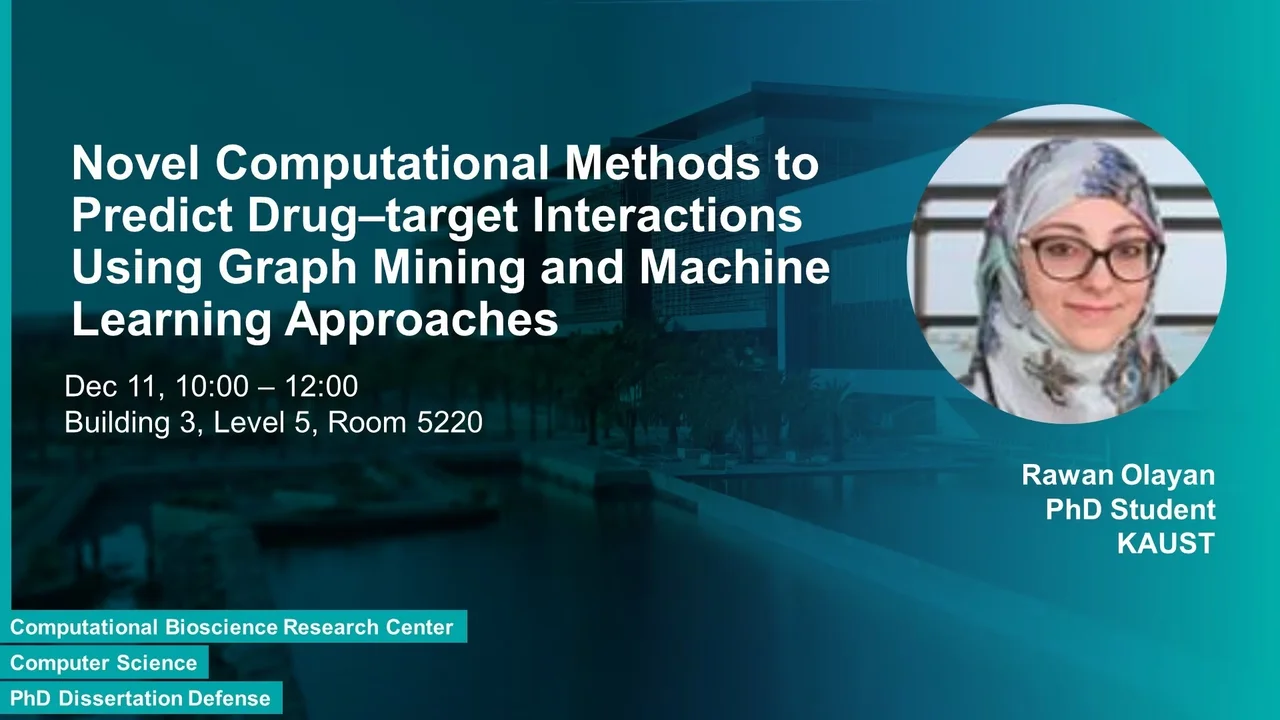
Novel Computational Methods to Predict Drug–target Interactions Using Graph Mining and Machine Learning Approaches
Overview
Abstract
Computational drug repurposing aims at finding new medical uses for existing drugs. The identification of novel drug-target interactions (DTIs) can be a useful part of such a task. Finding computationally DTIs is a convenient strategy to identify potentially new DTIs at low cost with reasonable accuracy. However, the current DTI prediction methods suffer a high false positive prediction rate.
Here, we present a comprehensive review of the recent progress in the field of DTI prediction from data-centric and algorithmic-centric perspectives that can help in constructing novel reliable and efficient DTI methods. Further, we present DDR, a novel method that improves the DTI prediction accuracy. DDR achieves significantly more accurate results compared to state-of-the-art methods. Using independent sources of evidence, 22 out of the top 25 DDR novel predictions are validated as correct. This suggests that DDR can be used as an efficient method to identify correct DTIs. Finally, we present DDR-FE a novel method that predicts the effect that drugs exert on their targets. On different representative datasets, under various test setups, and using different performance measures, DDR-FE achieves excellent performance. Using a blind test dataset, 2,300 out of 3,076 DTIs effects predicted by DDR-FE are validated as correct. This suggests that DDR-FE can be used as an efficient method to identify the correct effect of a drug on its target.
Brief Biography
Rawan Olayan completed her B.S in Computer Science from King Abdulaziz University (KAU) in 2011 and M.S. in Computer Science from King Abdullah University of Science and Technology (KAUST) in 2012. Currently, she is a Ph.D. candidate in the Computational Bioscience Research Center in Prof. Vladimir Bajic's group at KAUST focusing on Bioinformatics, Data integration, Data mining, Graph mining, and Machine learning.
